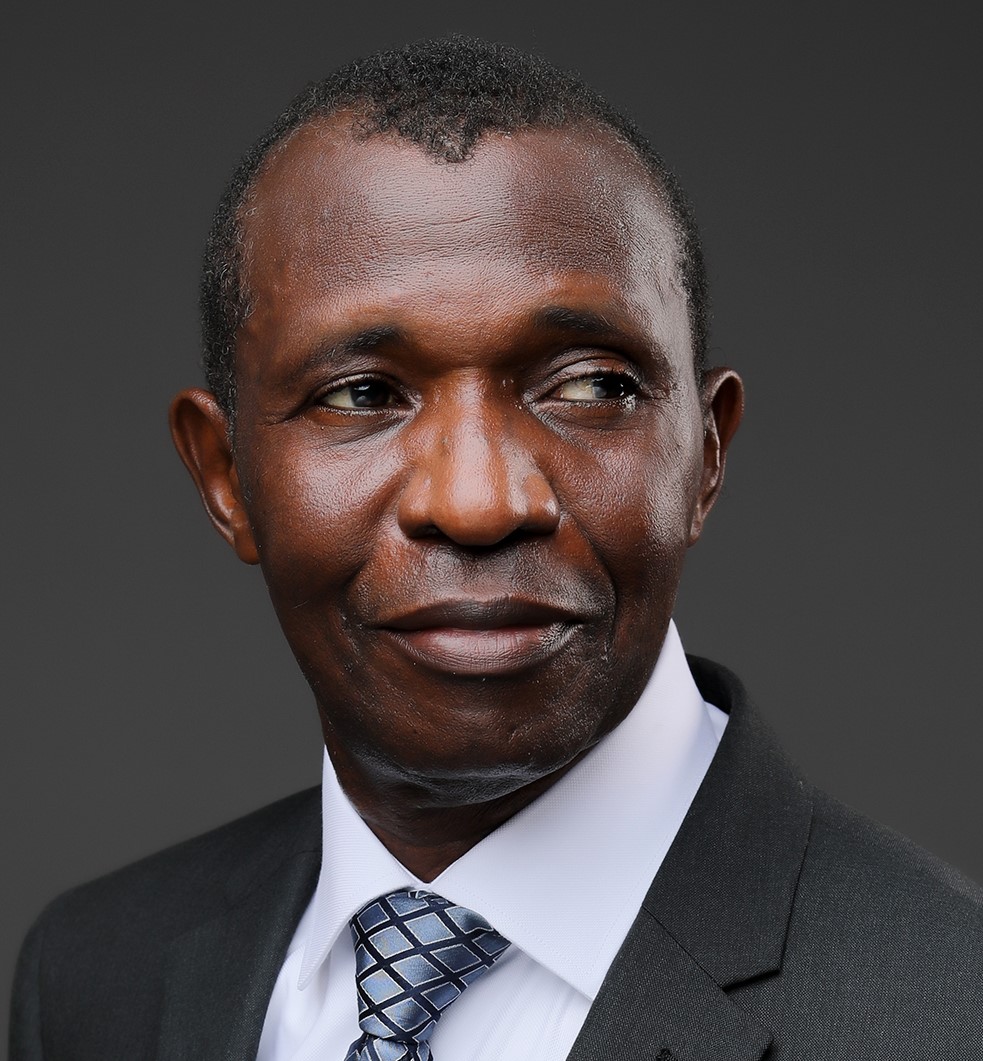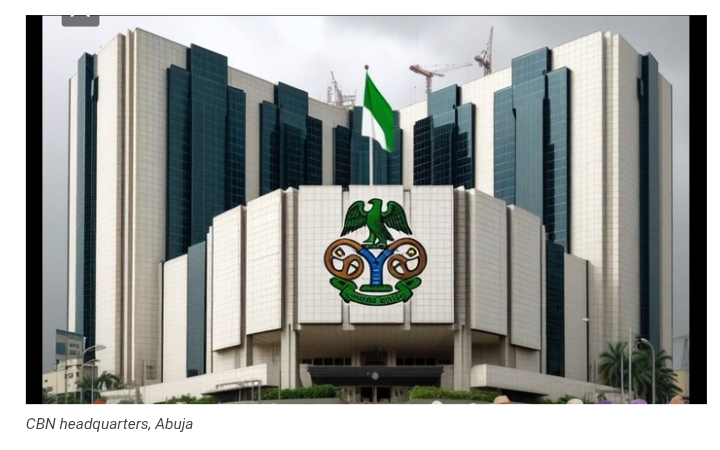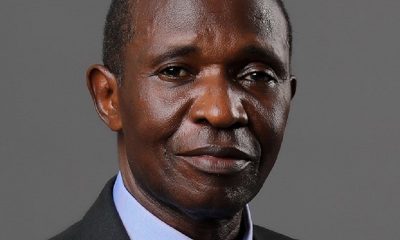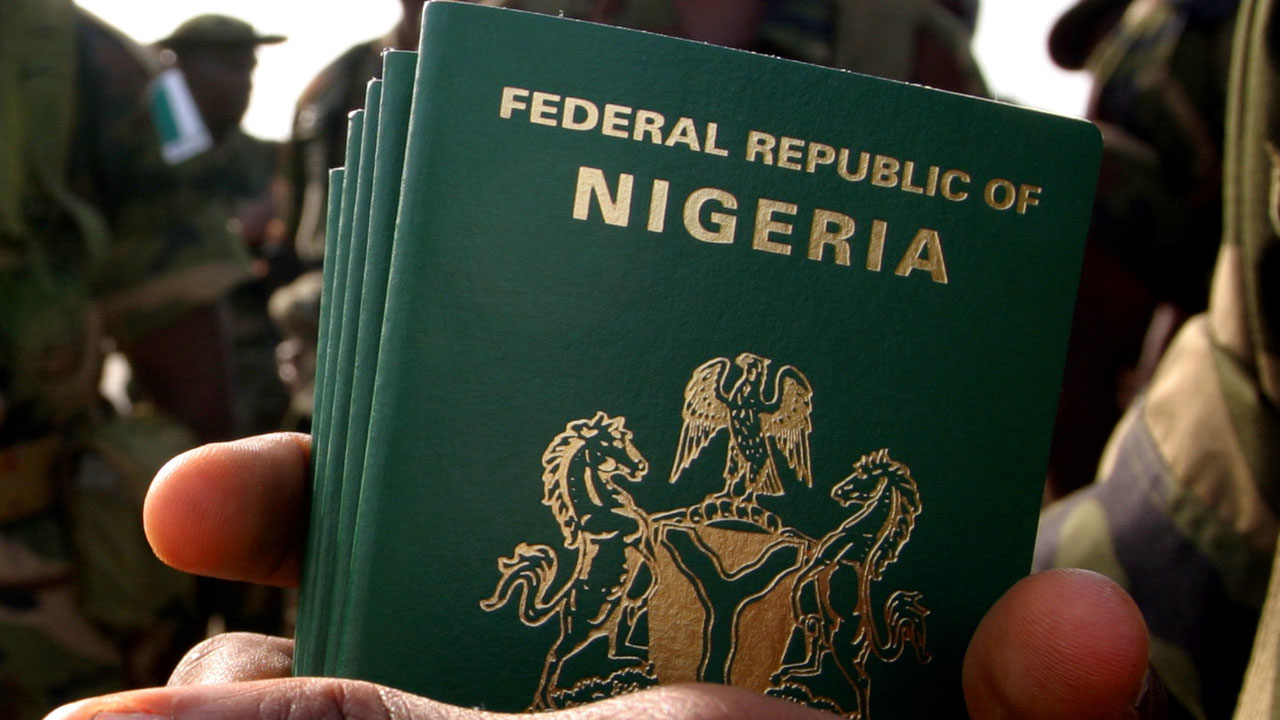Feature/OPED
2023 Presidency: Using Your Votes to Reconstruct, Reshape Nigeria

By Michael Owhoko, PhD
As Nigerians file out to elect a new president on February 25, it is imperative to remind electorates that a country’s future and destiny are shaped by the choice of personality they elect as president. Entrusting a country’s leadership and resources to someone with impaired vision and dubious national disposition will be a tragedy.
In context, the Nigerian President is one of the most powerful in the world, given the scope of responsibilities and powers as enshrined in the 1999 Constitution. With 68 items on the exclusive list and mere 12 items on the concurrent list of the constitution, the destiny and future of Nigerians are in the hands of one man – the president.
Since man is a product of his thought process, the president’s style of administration will be conditioned by his character. This means that the well-being of citizens, prosperity and wheels of development of Nigeria are contingent upon the demeanour and capacity of the president.
A president with integrity and a clear national vision devoid of materialism and ethnic prejudice can change a country, as we saw in Singapore under Lee Kuan Yew. The choice of Nigerian voters should be premised on this standard. Nigeria cannot afford to entrust its leadership and resources to a colourless personality to determine its destiny.
Nigeria requires a president that is capable of steering the country away from tragedy to optimism. Prosperous nations are not configured from heaven. They are products of the selflessness and commitment of those in leadership. Electing a person without vision, capacity, integrity and empathy as president will amount to sacrificing the collective well-being of the people on the altar of incompetence.
Therefore, as you vote for the president of your choice, let Nigeria’s overall national interest guide your decision. Your personal survival depends on it. Do not allow ethnicity, religion, emotions and primordial sentiments to influence your choice. A wrong choice at this critical period of Nigeria’s democratic journey will mean further erosion of citizens’ dignity, both at home and abroad.
Incompetence, ethnic nationalism, nepotism and greed, as evident in poor management of the economy, insecurity and corruption, are factors that have kept the country prostrate. These elements are responsible for leadership failure, stunted growth, and poverty in the country. It is, therefore, critical to vote for a candidate with the requisite capacity to deliver on the aspirations of Nigerians. Failure to do this will mean no lessons have been learned from the current widespread hardship.
As a voter, ask yourself this honest question. Has your living condition in the last eight years improved or dipped? Without subterfuge, Nigeria has been on a downward swing in all critical facets of socioeconomic space. This is evident in the increasing number of those falling into the poverty bracket, as reflected in the growing penury rate in Nigeria.
The 2022 Multidimensional Poverty Index survey carried out by the National Bureau of Statistics (NBS), together with its partners, captured this vividly.
According to the survey, 63% of persons living within Nigeria (133 million people) are multidimensionally poor, out of which 65% of the poor (86 million people) live in the North, while 35% (nearly 47 million) live in the South.
The poor Nigerians under reference here are not politicians but a majority of the voting public. Unfortunately, the hope that Nigeria will get out of this mess soon was dashed by President Muhammadu Buhari when he asserted that he had done his best for the country, even in the face of a growing debt profile, inflation, unemployment, corruption, insecurity and capital flight. This is the mirror image of the country’s leadership capacity.
When this is juxtaposed with the recent report by the Debt Management Office (DMO) on the nation’s debt, then Nigeria is in big trouble. The DMO stated in December 2022, the country’s public debt had reached N44.6 trillion. When viewed against the backdrop of Nigeria’s revenue-to-debt service ratio, which The Economist Intelligence Unit described as the worst in the world, it means that Nigeria is in crisis. With a high debt-service ratio and dwindling revenue, the provision of infrastructure is relegated, compounding the woes of Nigerians.
Voters should, therefore, not repeat the mistake of the past. Those who voted in previous elections based on ethnic and religious lines had no inkling that their fortunes would plummet. Today, many of those voters have been humbled by the poor performance of the economy as depicted by the misery index, particularly inflation which has eaten deep into their pockets. They have become victims of their own decision.
Obviously, the wrong choice of candidates has been unhelpful to the future of this country. Check your conscience and reflect on the number of Nigerians that have lost their lives in the last eight years, either through insecurity or poor management of the economy or suicide.
Also, think about the number of businesses that have closed shop or the growing band of single parenthood resulting from broken marriages. All these have their roots in the poor handling of the nation’s economy.
As part of the consequence, there has been a mass exodus from Nigeria. Voters must note that to “japa” or flee abroad is no solution. Of all those leaving or escaping from the country to seek greener pastures overseas, only less than five per cent achieve their aspirations. Over 90 per cent of these Nigerians struggle to make ends meet, regretting the decision to relocate.
On one of my trips to London a few years back, I went to Kaycee’s Bar, a popular Nigerian joint in Holloway, where Nigerians hang out and where sometimes, Nigeria’s independence celebrations were held. While there, I met two Nigerians at the underground disco section. They begged for money, saying they were trapped and would like to return to Nigeria. I was touched and parted with a few pounds as support. This is just one of the tales and ugly experiences of Nigerians abroad.
Ironically, while the majority of Nigerians are reeling from the excruciating effect of poverty, the president, governors and other elected officials are swimming in affluence with high-quality life made possible by manipulative access to the public treasury, despite managing the economy aground. Politics in Nigeria is the surest way to break out of poverty.
Voters should know that the president and governors do not spend their salaries while in office. Their bills are borne by the government, including feeding at the government’s expense. Even members of their extended families are relocated to the Villa or government house to enjoy these privileges. This cannot happen in advanced democracies. Yet, in midst of this, the average Nigerian toil day and night to stay afloat.
At the last World Cup in Qatar, the President of Liberia, George Weah, watched his son, Timothy, play for the United States of America. It is most unlikely a Nigerian President will allow his son to play football games for fear of injuries. He would rather make his son a billionaire through the award of indirect contracts or presidential favours.
The underpinning motive of politicians is not to serve but to acquire the power to accumulate wealth. Without empathy, they multiply poverty through fiscal indiscipline and extravagance while fraudulently feeding fat on the nation’s resources. This is why voters must liberate themselves from this hopeless life of poverty and frustration caused by leadership greed and bankruptcy.
With 48 million youths out of a total of 93.5 million eligible voters, coupled with the poor, credible leaders can be elected, but politicians exploit their vulnerability, using ethnicity, religion and handouts as inducements to manipulate them. Voters should be reminded that these office seekers would move on to oil their profligate lifestyles, leaving the electorate to suffer the consequences of their choice.
Nigeria has the resources to pull the country out of poverty, but leaders are indifferent. As long as they can access good healthcare and send their children abroad for quality education, they care less about the masses who are left to contend with low-quality education, poor healthcare system, erratic electricity and bad road network.
If the resources of the country are effectively harnessed and deployed, particularly in a restructured political system which is best suitable for a plural society like Nigeria, the country will quickly recover from current economic woes. But leaders with entrenched interests are opposed to this arrangement, preferring the status quo for selfish reasons.
Voters must therefore rise in unison and vote out ethnic bigots and visionless persons without integrity and capacity as president, failing which, they have no other persons to blame but themselves. February 25, 2023, has provided another opportunity, so be resolute and courageous. Vote conscientiously to reconstruct and reshape Nigeria in order to restore its corroded dignity.
Dr Mike Owhoko is a Lagos-based journalist and author. He can be reached at www.mikeowhoko.com
Feature/OPED
Brent’s Jump Collides with CBN Easing, Exposes Policy-lag Arbitrage

Nigeria is entering a timing-sensitive macro set-up as the oil complex reprices disruption risk and the US dollar firms. Brent moved violently this week, settling at $77.74 on 02 March, up 6.68% on the day, after trading as high as $82.37 before settling around $78.07 on 3 March. For Nigeria, the immediate hook is the overlap with domestic policy: the Central Bank of Nigeria (CBN) has just cut its Monetary Policy Rate (MPR) by 50 basis points to 26.50%, whilst headline inflation is still 15.10% year on year in January.
“Investors often talk about Nigeria as an oil story, but the market response is frequently a timing story,” said David Barrett, Chief Executive Officer, EBC Financial Group (UK) Ltd. “When the pass-through clock runs ahead of the policy clock, inflation risk, and United States Dollar (USD) demand can show up before any oil benefit is felt in day-to-day liquidity.”
Policy and Pricing Regime Shift: One Shock, Different Clocks
EBC Financial Group (“EBC”) frames Nigeria’s current set-up as “policy-lag arbitrage”: the same external energy shock can hit domestic costs, FX liquidity, and monetary transmission on different timelines. A risk premium that begins in crude can quickly show up in delivered costs through freight and insurance, and EBC notes that downstream pressure has been visible in refined markets, with jet fuel and diesel cash premiums hitting multi-year highs.
Market Impact: Oil Support is Conditional, Pass-through is Not
EBC points out that higher crude is not automatically supportive of the naira in the short run because “oil buffer” depends on how quickly external receipts translate into market-clearing USD liquidity. Recent price action illustrates the sensitivity: the naira was quoted at 1,344 per dollar on the official market on 19 February, compared with 1,357 a week earlier, whilst street trading was cited around 1,385.
At the same time, Nigeria’s inflation channel can move quickly even during disinflation: headline inflation eased to 15.10% in January from 15.15% in December, and food inflation slowed to 8.89% from 10.84%, but energy-led transport and logistics costs can reintroduce pressure if the risk premium persists. EBC also points to a broader Nigeria-specific reality: the economy grew 4.07% year on year in 4Q25, with the oil sector expanding 6.79% and non-oil 3.99%, whilst average daily oil production slipped to 1.58 million bpd from 1.64 million bpd in 3Q25. That mix supports external-balance potential, but it also underscores why the domestic liquidity benefit can arrive with a lag.
Nigeria’s Buffer Looks Stronger, but It Does Not Eliminate Sequencing Risk
EBC sees that near-term external resilience is improving. The CBN Governor said gross external reserves rose to USD 50.45 billion as of 16 February 2026, equivalent to 9.68 months of import cover for goods and services. Even so, EBC views the market’s focus as pragmatic: in a risk-off tape, investors tend to price the order of transmission, not the eventual balance-of-payments benefit.
In the near term, EBC expects attention to rotate to scheduled energy and policy signposts that can confirm whether the current repricing is a short, violent adjustment or a more durable regime shift, including the U.S. Energy Information Administration (EIA) Short-Term Energy Outlook (10 March 2026), OPEC’s Monthly Oil Market Report (11 March 2026), and the U.S. Federal Reserve meeting (17 to 18 March 2026). On the domestic calendar, the CBN’s published schedule points to the next Monetary Policy Committee meeting on 19 to 20 May 2026.
Risk Frame: The Market Prices the Lag, Not the Headline
EBC cautions that outcomes are asymmetric. A rapid de-escalation could compress the crude risk premium quickly, but once freight, insurance, and hedging behaviour adjust, second-round effects can linger through inflation uncertainty and a more persistent USD bid.
“Oil can act as a shock absorber for Nigeria, but only when the liquidity channel is working,” Barrett added. “If USD conditions tighten first and domestic pass-through accelerates, the market prices the lag, not the headline oil price.”
Brent remains an anchor instrument for tracking this timing risk because it links energy-led inflation expectations, USD liquidity, and emerging-market risk appetite in one market. EBC Commodities offering provides access to Brent Crude Spot (XBRUSD) via its trading platform for following energy-driven macro volatility through a single instrument.
Feature/OPED
Gen Alpha: Africa’s Digital Architects, Not Your Target Audience

By Emma Kendrick Cox
This year, the eldest Gen Alpha turns 16.
That means they aren’t just the future of our work anymore. They are officially calling for a seat at the table, and they’ve brought their own chairs. And if you’re still calling this generation born between 2010 and 2025 the iPad generation, then I hate to break it to you, but you’re already obsolete. To the uninitiated, they look like a screen-addicted mystery. To those of us paying attention, they are the most sophisticated, commercially potent, and culturally fluent architects Africa has ever seen.
Why? Because Alphas were not born alongside the internet. They were born inside it. And by 2030, Africa will be home to one in every three Gen Alphas on the planet.
QWERTY the Dinosaur
We are witnessing the rise of a generation that writes via Siri and speech-to-text before they can even hold a pencil. With 63% of these kids navigating smartphones by age five, they don’t see a QWERTY keyboard as a tool. They see it as a speed bump, the long route, an inefficient use of their bandwidth. They don’t need to learn how to use tech because they were born with the ability to command their entire environment with a voice note or a swipe.
They are platform agnostic by instinct. They don’t see boundaries between devices. They’ll migrate from an Android phone to a Smart TV to an iPhone without breaking their stride. To them, the hardware is invisible…it’s the experience that matters.
They recognise brand identities long before they know the alphabet. I share a home with a peak Gen Alpha, age six and a half (don’t I dare forget that half). When she hears the ding-ding-ding-ding-ding of South Africa’s largest bank, Capitec’s POS machine, she calls it out instantly: “Mum! Someone just paid with Capitec!” It suddenly gives a whole new meaning to the theory of brand recall, in a case like this, extending it into a mental map of the financial world drawn long before Grade 2.
And it ultimately lands on this: This generation doesn’t want to just view your brand from behind a glass screen. They want to touch it, hear it, inhabit it, and remix it. If they can’t live inside your world, you’re literally just static.
The Uno Reverse card
Unlike any generation we’ve seen to date, households from Lagos to Joburg and beyond now see Alphas hold the ultimate Uno Reverse card on purchasing power. With 80% of parents admitting their kids dictate what the family buys, these Alphas are the unofficial CTOs and Procurement Officers of the home:
-
The hardware veto: Parents pay the bill, but Alphas pick the ISP based on Roblox latency and YouTube 4K buffers.
-
The Urban/Rural bridge: In the cities, they’re barking orders at Alexa. In rural areas, they are the ones translating tech for their families and narrowing the digital divide from the inside out.
-
The death of passive: I’ll fall on my sword when I say that with this generation, the word consumer is dead. It implies they just sit there and take what you give them, when, on the contrary, it is the total opposite. Alphas are Architectural. They are not going to buy your product unless they can co-author the experience from end to end.
As this generation creeps closer and closer to our bullseye, the team here at Irvine Partners has stopped looking at Gen Alpha as a demographic and started seeing them as the new infrastructure of the African market. They are mega-precise, fast, and surgically informed.
Believe me when I say they’ve already moved into your industry and started knocking down the walls. The only question is: are you building something they actually want to live in, or are you just a FaceTime call they are about to decline?
Pay attention. Big moves are coming. The architects are here.
Emma Kendrick Cox is an Executive Creative Director at Irvine Partners
Feature/OPED
Why Digital Trust Matters: Secure, Responsible AI for African SMEs?

By Kehinde Ogundare
For years, security for SMEs across sub-Saharan Africa meant metal grilles and alarm systems. Today, the most significant risks are invisible and growing faster than most businesses realise.
Artificial Intelligence has quietly embedded itself into everyday operations. The chatbot responding to customers at midnight, the system forecasting inventory requirements, and the software identifying unusual transactions are no longer experimental technologies. They are becoming standard features of modern business tools.
Last month’s observance of Safer Internet Day on February 10, themed ‘Smart tech, safe choices’, marked a pivotal moment. As AI adoption accelerates, the conversation must shift from whether businesses should use AI to how they deploy it responsibly. For SMEs across Africa, digital trust is no longer a technical consideration. It is a strategic business imperative.
The evolving threat landscape
Cybersecurity threats facing sub-Saharan African SMEs have moved well beyond basic phishing emails. Globally, cybercrime costs are projected to reach $10.5 trillion this year, fuelled by generative AI and increasingly sophisticated social engineering techniques. Ransomware attacks now paralyse entire operations, while other threats quietly extract sensitive customer data over extended periods.
The regional impact is equally significant. More than 70% of South African SMEs report experiencing at least one attempted cyberattack, and Nigeria faces an average of 3,759 cyberattacks per week on its businesses. Kenya recorded 2.54 billion cyber threat incidents in the first quarter of 2025 alone, whilst Africa loses approximately 10% of its GDP to cyberattacks annually.
The hidden risk of fragmentation
A common but often overlooked vulnerability lies in digital fragmentation.
In the early stages of growth, SMEs understandably prioritise affordability and agility. Over time, this can result in a patchwork of disconnected applications, each with separate logins, security standards, and privacy policies. What begins as flexibility can involve operational complexity.
According to IBM Security’s Cost of a Data Breach Report, companies with highly fragmented security environments experienced average breach costs of $4.88 million in 2024.
Fragmented systems create blind spots; each additional data transfer between applications increases exposure. Inconsistent security protocols make governance harder to enforce. Limited visibility reduces the ability to detect anomalies early. In practical terms, complexity increases risk.
Privacy-first AI as a competitive differentiator
As AI capabilities become embedded in business software, SMEs face a choice about how they approach these powerful tools. The risks are not merely theoretical.
Consumers across Africa are becoming more aware of data rights and are willing to walk away from businesses that cannot demonstrate trustworthiness. According to KPMG’s Trust in AI report, approximately 70% of adults do not trust companies to use AI responsibly, and 81% expect misuse. Meanwhile, studies also show that 71% of consumers would stop doing business with a company that mishandles information.
Trust, once lost, is difficult to rebuild. In the digital age, a single data leak can destroy a reputation that took ten years to build. When customers share their payment details or purchase history, they extend trust. How you handle that trust, particularly when AI processes their data, determines whether they return or take their business elsewhere.
Privacy-first, responsible AI design means building intelligence into business systems with data protection, transparency and ethical use embedded from the outset. It involves collecting only necessary information, storing it securely, being transparent about how AI makes decisions, and ensuring algorithms work without compromising customer privacy. For SMEs, this might mean choosing inventory software where predictive AI runs on your own data without sending it externally, or customer service platforms that analyse patterns without exposing individual records. When AI is built responsibly into unified platforms, it becomes a competitive advantage: you gain operational efficiency whilst demonstrating that customer data is protected, not exploited.
Unified platforms and operational resilience
The solution lies in rethinking digital infrastructure. Rather than accumulating disparate tools, businesses need unified platforms that integrate core functions whilst maintaining consistent security protocols.
A unified approach means choosing cloud-based platforms where functions share common security standards, and data flows seamlessly. For a manufacturing SME, this means inventory management, order processing and financial reporting operate within a single security framework.
When everything operates cohesively, security gaps diminish, and the attack surface shrinks. And the benefits extend beyond risk reduction: employees spend less time on administrative friction, customer data stays consistent, and platforms enable secure collaboration without traditional infrastructure costs.
Safer Internet Day reminds us that the digital world requires active stewardship. For SMEs across the African continent who are navigating complex threats whilst harnessing AI’s potential, digital trust is foundational to sustainable growth. Security, privacy and responsible AI are essential characteristics of any technology infrastructure worth building upon. Businesses that embrace unified, privacy-first platforms will be more resilient against cyber threats and better positioned to earn and maintain trust. In a market where trust is currency, that advantage is everything.
Kehinde Ogundare is the Country Head for Zoho Nigeria
-

 Feature/OPED6 years ago
Feature/OPED6 years agoDavos was Different this year
-
Travel/Tourism10 years ago
Lagos Seals Western Lodge Hotel In Ikorodu
-

 Showbiz3 years ago
Showbiz3 years agoEstranged Lover Releases Videos of Empress Njamah Bathing
-

 Banking8 years ago
Banking8 years agoSort Codes of GTBank Branches in Nigeria
-

 Economy3 years ago
Economy3 years agoSubsidy Removal: CNG at N130 Per Litre Cheaper Than Petrol—IPMAN
-

 Banking3 years ago
Banking3 years agoSort Codes of UBA Branches in Nigeria
-

 Banking3 years ago
Banking3 years agoFirst Bank Announces Planned Downtime
-

 Sports3 years ago
Sports3 years agoHighest Paid Nigerian Footballer – How Much Do Nigerian Footballers Earn


















